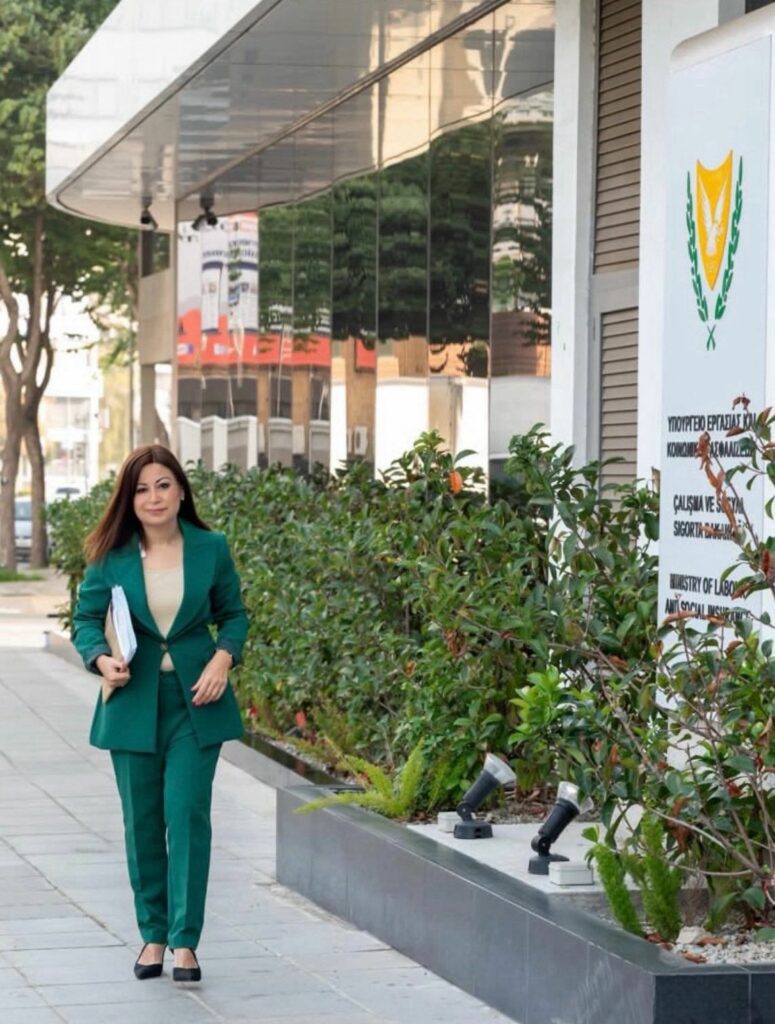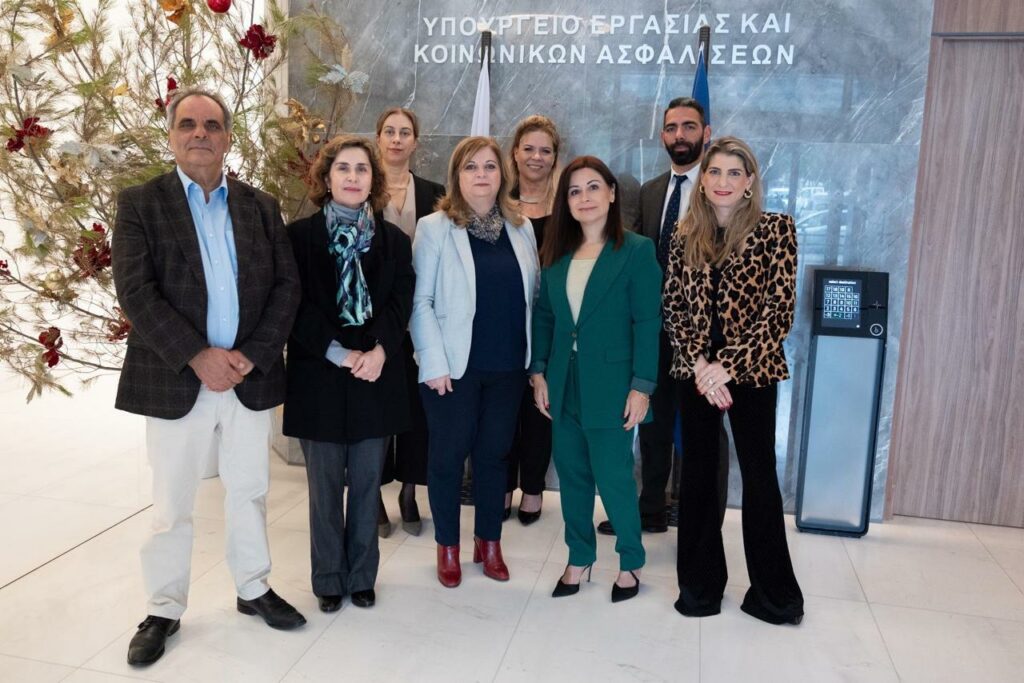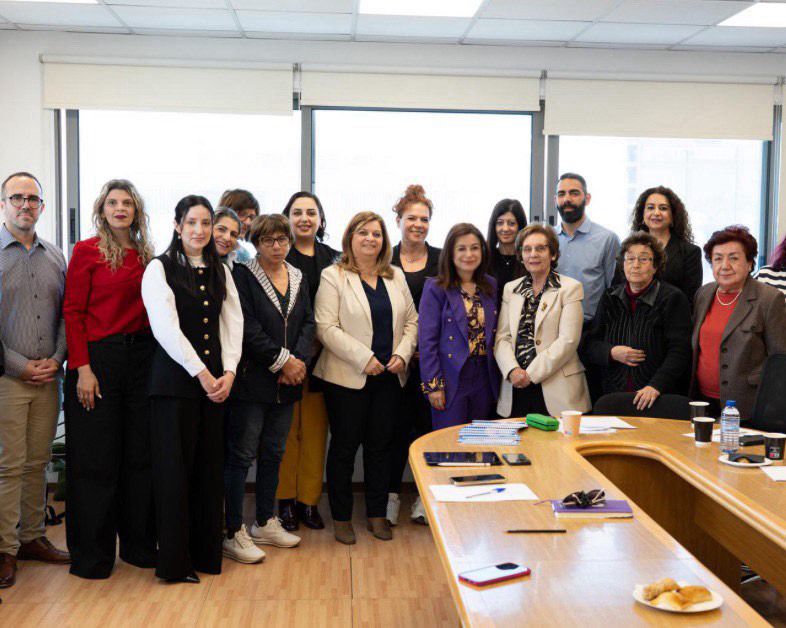Filenews 27 October 2025 - by Theodora Nikolaou
Despite the fact that surveys both in Cyprus and by European institutions show that one in three women states that they have received some form of sexual harassment, unfortunately, the filing of complaints does not reflect this magnitude of the problem. This is what the president of the Committee for Gender Equality in Employment and Vocational Education (EIF), Eleni Kouzoupi, states in an interview with "F". According to her, from 2011 until today, the EIF has received only 35 complaints related to sexual harassment. At the same time, 10% of the cases when they arrive at the Commission's offices and submit their complaint, then regret it and withdraw it.
He explains why victims do not make complaints, records what needs to be changed in the system itself in order to break the silence, while talking about the work and mission of the EIF, especially in terms of supporting complainants.

What is the mission of the Committee on Gender Equality in Employment and Vocational Education (EIT)?
The Committee was established and operates under Law 205(I)/2002 on equal treatment in employment and vocational training. The Commission's responsibilities can be divided into three main sections:
- The Commission and the State: Monitoring the implementation of the above legislation. Its role is purely advisory with regard to the definition or revision of national policy on issues related to its field of competence, the introduction or revision of relevant legislation, the adoption of measures and the implementation of programs to promote gender equality.
- The Committee and the promotion of relevant knowledge: Promotes the conduct of studies and surveys and the collection of statistical data and submits reports and suggestions to the Minister of Labour and Social Insurance. It conducts training seminars on equality issues in the workplace.
- The Committee and the public: Submits ex officio complaints, and accepts complaints which are forwarded to the Chief Inspector of the Department of Labour for examination. The Labour Department must inform the Committee of the outcome of the complaint. The Commission has no competence to investigate complaints. It provides advice on issues related to gender equality in employment and vocational education and training to anyone interested in it and free of charge. It provides free independent assistance to victims of discrimination when they submit a complaint, which will be judged to be well-founded and wishes the victim to take legal action. It assists employers in drafting a Code for the prevention and treatment of sexual harassment.

What do surveys on sexual harassment in the workplace in Cyprus show?
Despite the fact that surveys both in Cyprus and by European institutions show that one in three women states that they have received some form of sexual harassment, unfortunately, the filing of complaints does not reflect this magnitude of the problem. A survey carried out in 2024 jointly by the EU Agency for Fundamental Rights (FRA), the European Institute for Gender Equality (EIGE) and the European Statistical Office (Eurostat), showed that in the EU, 30.8% of women have experienced sexual harassment in the workplace during their lifetime (in Cyprus 39.9%), while 4.3% of women have suffered it in the 12 months before the survey (in Cyprus 7.4%). It is important to say that overall, 27.2% of women have experienced sexual harassment at work by a male perpetrator, while 30.8% of women have experienced sexual harassment at work by "any perpetrator". From these results, it can be concluded that most incidents of sexual harassment against women are committed by men. In terms of male perpetrators, 15.8% of women in the EU-27 have experienced sexual harassment by a colleague and 7.4% have experienced sexual harassment by a supervisor or supervisor, while 9.3% reported that the sexual harassment was committed by another man at work, who could be a customer or a consumer.
As it was said, recently in the Parliament, in a period of three years, only 10 complaints were submitted to the Department of Labour. Why do you think this is happening?
According to research results, victims do not report for the following reasons:
- The fear of the victims for possible reprisals.
- Possibility of dismissal.
- Unpleasant working climate and moral harassment.
- Negative criticism and targeting.
- Fear of stigmatization.
- Doubt as to whether a complainant will find support from her wider environment.
- Complexity of this process.
- Difficulty in reviving, through their narratives, the experience they lived.
- The soul-destroying process that begins from the moment a complaint is filed.
- A possible secondary victimization of them either by institutions or at work.
- The gaps that exist around information and awareness about sexual harassment in the workplace.
- Fear that a complaint will limit their prospects for career advancement.
- Fear of their name being vilified.
In addition, a significant number of women claimed that they would be ashamed to talk about the sexual harassment they may experience in the workplace, as they believe that their complaint would not be taken seriously by the relevant supervisor or by their colleagues at work.
What needs to change in the system to make a complaint?
In order to make complaints, victims need to feel safe and informed about their rights. They should know that they will submit their complaint to institutions with a human face and with empathy. They should know that their complaint will be examined in a reasonable time and there will be information on the progress of the investigation of their complaint. At the same time, psychological support of victims is needed to empower them to cope with any reactions that arise in their work.

But based on today's data, why would you urge victims to report?
The Equality Commission is available to male and female workers and provides free counselling to employees and helps them to clarify whether there is indeed any form of discrimination based on sex, including harassment and sexual harassment. At the same time, he encourages them to make a complaint. The Committee provides free legal aid to victims of gender-based discrimination, not only sexual harassment, as long as their complaint is documented by inspectors of the Labour Department of the Ministry of Foreign Affairs or officials of the Commissioner for Administration and Protection of Human Rights so that it can proceed to court.
How many complaints did you receive as a Commission and what issues did they concern? How many of them ended up in justice and how many convictions did we have?
From 2011 until today, the EIF has received more than 170 complaints, concerning sexual harassment (35), maternity/pregnancy (50), discrimination in advancement (62), discrimination in access to employment (30). More than 150 free legal aids were granted for filing a lawsuit with the Court. Most of them had been vindicated in the Court, with the exception of the complaints in the promotion concerning female non-commissioned officers of the army, where the Court ruled that it was not within its competence.
Are there any victims who turn to you, but in the end do not report the event?
There are some cases of women (10%), who reach our offices and fill out the complaint form and then call to say that they regret it and do not want to continue.
Where can victims turn to report such incidents?
Victims can turn to the following institutions:
- Committee on Gender Equality in Employment and Vocational Training.
- Commissioner for Administration and Protection of Human Rights.
- Inspectors of the Labour Department of the Ministry of Labour.
- Cyprus Police.
According to the legislation, victims can also submit a complaint to gender equality promotion bodies, which in turn will forward the complaint on their behalf to the above institutions, except for the Police.
